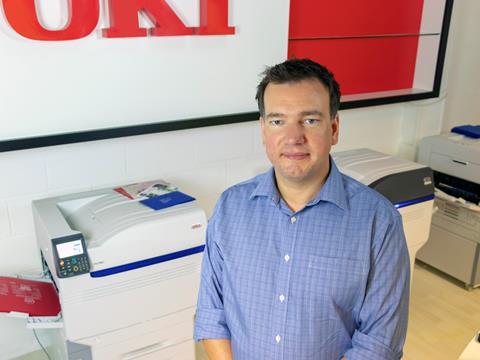
The packaging industry has a choice: evolve now to meet the increasing demand for sustainable packaging or become irrelevant, says Rob Brown, head of European business development at OKI Europe.
New rules coming into effect in 2025 require all packaging used in the European Union to be recyclable by 2030. The move by the bloc follows an existing ban on certain single-use plastics to reduce pollution in seas, oceans and beaches. It’s a call to the packaging industry to source a solution that ensures compliance with these new regulations.
For the smaller retailers and producers, cost pressures and lack of resources will complicate the journey towards compliance and meeting customer expectations. While 2030 may seem far away, action must be taken immediately to ensure that organisations don’t fall foul of upcoming rules.
Behind the new rules
Growing waste levels are the most important environmental issue for 46% of European citizens. It’s therefore unsurprising that sustainability is on the agenda of governments to force the industry to deliver eco-friendly products.
The new laws involve the monitoring of packaging and labelling to ensure that recycled content meets a minimum level, along with ensuring that all fresh produce labels are biodegradable. Packaging organisations looking to adopt agile practices will be concerned at the impact this will have on their operations.
Large batch orders of packaging and labels will likely be avoided as laws quickly change and create non-compliant stock. Any delay in goods being delivered to stores due to regulatory issues is likely to cause reputational damage among consumers.
Proving green credentials
Non-recyclable packaging is gradually being phased out by the EU. It will soon be assessed on a scale, with the lowest-scoring items banned from 2030. Brands have little option but to act, but a number of challenges typically prevent them from leveraging eco-packaging. The first is the high costs and lengthy lead times from external creative and print suppliers. Second is the necessity to order in high volumes when only small batches are needed, which leads to unsustainable wastage.
Alongside the pressure created by heightened consumer awareness and evolving regulations, customers are also searching for products that meet their desire for personalisation. Now, technology has evolved to enable retailers to print sustainable packaging both affordably and profitably in-house. It’s fully accessible to smaller retailers and those involved in Direct to Consumer (DTC) sales.
To create unique designs, 5 colour capabilities can enable coloured or metallised effect substrates such as gold or silver. Organisations also have the flexibility to choose between different recyclable materials such as plastic or paper, or even textured material and synthetic film. White typeface on clear or coloured backgrounds can highlight key sustainability messages about the ethical features or backstory behind the product.
Challenging the established ways of packaging
Packaging organisations need to challenge their established processes to ensure they can take advantage of e-commerce and in-store opportunities across the EU, which means meeting all durability, cost and recycling requirements.
While it may seem daunting to change existing operations, such as established printing models, pressure from both governments and consumers are making wholesale changes a much more attractive option. Printing in-house is a crucial capability to adapt to the growing demand for sustainable packaging.
With the technology available today, remaining agile and responding to changing demands doesn’t require specialist skills or a significant amount of space on a company’s premises. As regulatory change and customer pressure ramp up, packaging companies can be more selective about the materials they use and achieve greater control over sustainable practices.
Organisations that fail to prioritise sustainability today risk losing out on critical revenue streams from sustainability-conscious consumers tomorrow. Customers are not only demanding sustainable products when making purchases, but are even prepared to pay more for them. The escalation in government regulation has only accelerated the move toward sustainability.
The clock is ticking toward potential fines and possible market access restrictions for the businesses that fail to take action. Agile firms are moving swiftly towards sustainable solutions with affordable technology that complies with regulations and meets consumer requirements for eco-friendly and personalised packaging.











No comments yet